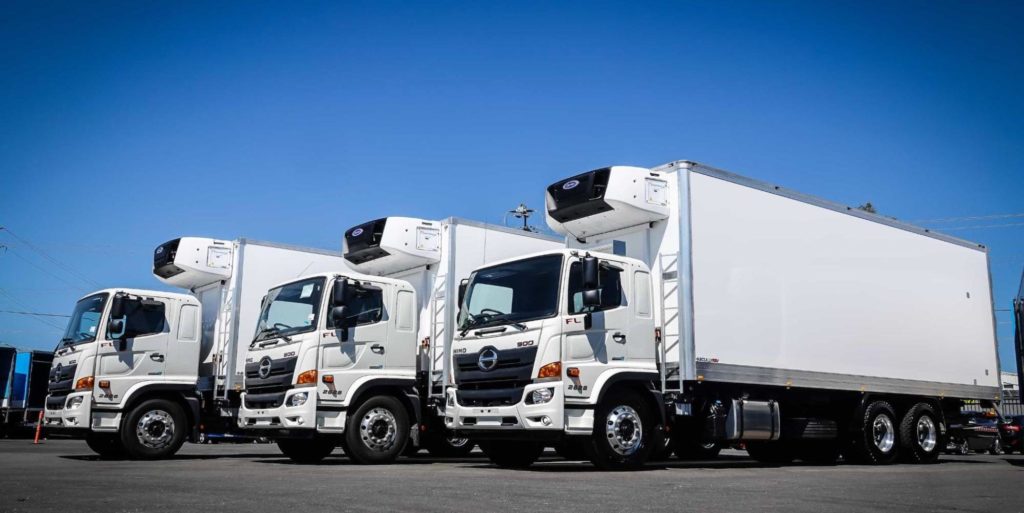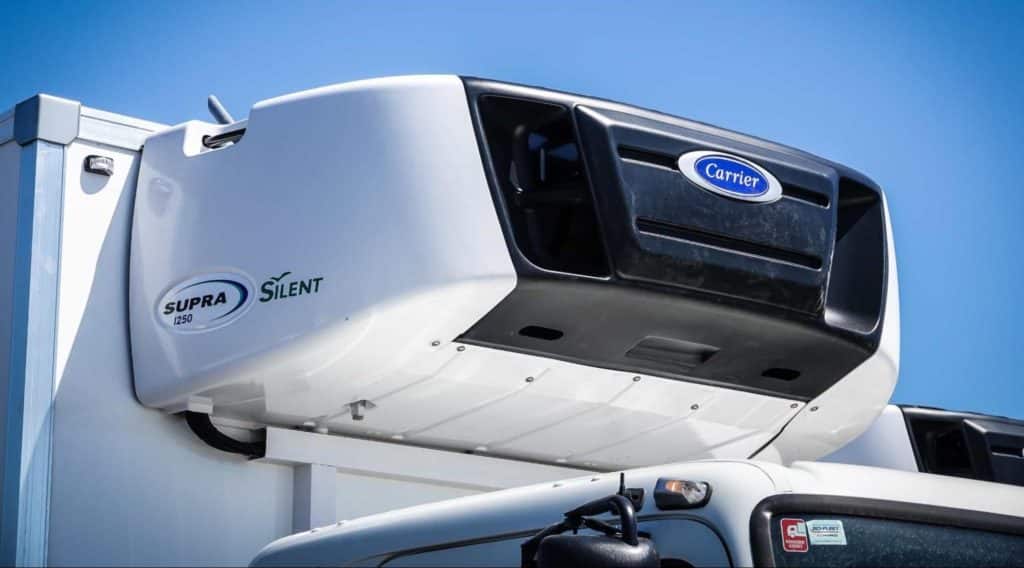
An Introduction to Refrigerated Delivery Vehicles
While the world of logistics may appear to be quite straightforward, there are a variety of items that require special protection from the elements. Many businesses use temperature-controlled transportation, such as refrigerated delivery vehicles, as a solution. This article explains what goes into refrigerated delivery vehicles and the wide range of benefits.
What Are Refrigerated Delivery Vehicles?
What do they do?
Refrigerated transport, also known as “reefer”, is the most commonly used type of temperature-controlled transportation.
It’s a specialised way to carry goods that need to be refrigerated for safety. Industries such as food, pharmaceuticals, florists and cosmetics rely on them every day. For countries like Australia that have high temperatures and humidity levels, it’s a must-have. These vehicles have built-in refrigeration systems to keep the products in their pre-shipped condition.
How do they work?
There are many different types of refrigerated delivery vehicles but they all have a few things in common. They need insulation, a calibrated thermostat, a refrigeration unit and fan, as well as an air delivery duct. Doors also need to seal tightly when closed and be free of cracks and holes.
When it comes to the refrigeration unit, it’s worth opting for reliable brands like Carrier and Thermo King because they’re more efficient, reliable and quieter than other manufacturers.
All these essential features work together to provide a consistent, cool environment.
Benefits Of Refrigerated Transport For Business
Refrigerated transport provides businesses with several benefits. The main one is the prevention of spoilage, which causes unnecessary waste and costs. Many products can be damaged by uncontrollable weather conditions, temperature changes, and even humidity. Cold chain delivery preserves goods at their peak condition throughout the journey to the end user.
A variety of products can benefit from refrigerated transport including:
- Fresh Produce – Most farm-fresh produce will wilt or ripen too quickly if shipped without proper refrigeration. Reefer vehicles stop ripening fruit from spoiling faster than normal vehicles which heat up.
- Animal products – Whether frozen or refrigerated, they must be transported in a temperature-controlled environment. The ideal temperatures for meat, seafood, egg and dairy preservation are different but work with suppliers to determine the best temperature for products.
- Pharmaceuticals – Many pharmaceutical products require refrigeration or freezing at specific temperatures to be safe for patients and health professionals. This has made refrigerated transport especially important for the medical industry during the pandemic.
- Beauty products – Minerals and chemicals in beauty products can melt or deteriorate if heated beyond recommended temperatures.
- Flowers – Sensitivity to light and temperatures makes flowers wilt or rot if not kept in the right shipping conditions.
- Candles – It’s not just a flame that can melt a candle, the heat of a standard vehicle on a hot day will do it. Simply put, candles require refrigerated transport too.
Refrigerated delivery vehicles are useful year-round. When the weather is hot, refrigerated vehicles stop products from melting, ripening, or otherwise spoiling. Likewise, in colder times of the year, temperature control can keep products from freezing.
Different Types of Refrigerated Delivery Vehicles
There are a variety of different types of refrigerated delivery vehicles available on the market. Different shapes and sizes accommodate different types of products and quantities. Some are better for long-haul journeys, while others are better equipped to make multiple stops.
The most common type of refrigerated delivery vehicle is the reefer truck, which gets its name from the “reefer” or refrigeration unit. For smaller, local deliveries around a city or town, you might be better off opting for a refrigerated ute. For interstate deliveries of large quantities, a trailer might be best.

What To Consider When Choosing A Vehicle
Hire or Buy?
There are pros and cons to both hiring and buying a refrigerated delivery vehicle. If you decide to buy a vehicle, you can customise it to your specifications and you’re backed by a 12-24 month workmanship warranty. However, you will have the initial expense of the purchase, plus ongoing costs like registration, insurance, and maintenance. You will also need to factor in depreciation.
On the other hand, if you lease or hire, you can avoid these costs and simply pay a monthly fee. This can be a more affordable option, especially for small businesses, and is incredibly popular as businesses can swap the vehicle over for a new one at the end of the lease.
Hiring comes as a total package, including essential fleet management services like mechanical servicing plus consultancy and advice from fleet management experts. Long term leases are also flexible and adaptable with the ability to change vehicle class anytime as contracts are won and lost. Short term leases could also be a carryover if you’re not sure of the length of your contract.
How To Care For And Maintain Your Refrigerated Vehicle
If you’ve decided to take the plunge and grow your business with a refrigerated delivery vehicle – congratulations! You’ve made a great decision that will undoubtedly benefit your business. But now that you have a fridge on wheels, it’s important to know how to properly care for and maintain it so that it serves you well for years.
Here are a few tips:
- Check the seals around the doors regularly to make sure they’re tight and not letting any cold air escape.
- Clean the interior of the fridge on a regular basis to prevent the build-up of food residue and bacteria.
- Keep an eye on the temperature gauge and adjust as necessary to ensure that goods are kept at the optimal temperature.
Regular servicing will help ensure your truck spends minimal time off the road and you can build a reputation for reliable, quality delivery.
Scully RSV specialises in refrigerated delivery vehicles with locations across Australia in Brisbane, Sydney and Melbourne. This allows us to support and grow with your business.
If you are considering establishing your own refrigerator truck fleet, restructuring your logistics, or simply looking for a solution that removes the hassle of managing your own trucks, we encourage you to contact us today!

